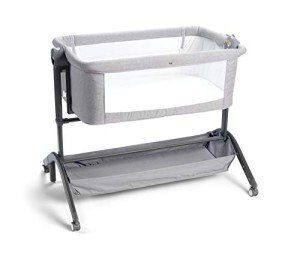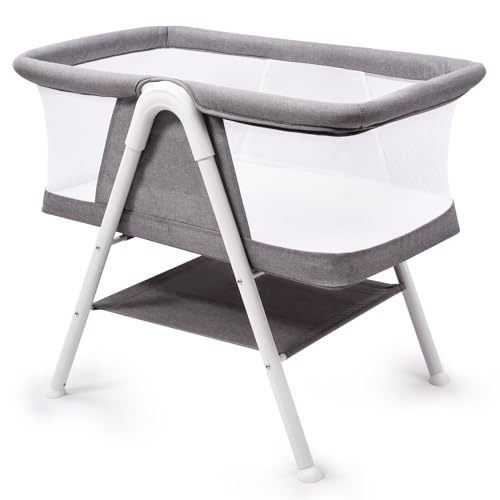11 Creative Ways To Write About Tots And Cots
페이지 정보

본문
Tots and Cots: A Comprehensive Guide for Parents
When it pertains to ensuring a safe and comfy sleeping environment for infants and young children, the options parents make-- ranging from cribs to cots-- can substantially affect their well-being. Today's short article dives deep into the complexities of selecting the best sleeping plans for tots, highlighting safety, design, performance, and how these choices evolve as a kid grows.
Understanding Tots and Cots
Tots generally describe young kids, especially young children aged in between 1 to 3 years, while cots are the sleeping plans specifically created for infants and young children. The appropriate sleeping devices for this age consists of numerous kinds of cots, top ranked cribs (relevant web site), and toddler beds.
Types of Cots
Numerous styles exist to fulfill the varied needs of both parents and kids. Below is a list describing the most common types of cots readily available:
Standard Crib
- A traditional crib is created for infants and typically consists of sides that can be adapted to different heights.
Convertible Crib
- This kind of crib can convert into a young child bed, daybed, or full-sized bed as the child grows, making it a long-term investment.
Portable Crib
- Likewise understood as travel cots, these are lightweight and easily foldable, perfect for traveling or smaller living spaces.
Co-Sleeper
- A co-sleeper great crib attaches to the side of the parents' bed, permitting easy gain access to while guaranteeing the Baby Cot has a separate and safe sleeping space.
Toddler Bed
- A young child bed is a small bed that resembles a basic bed but is developed specifically for young children, typically featuring safety rails.
Mini Crib
- Mini cribs are smaller than basic cribs, making them a terrific choice for tight areas, but they appropriate for babies just.
Security Considerations
Ensuring safety is critical when choosing a cot for a child. Here are vital security standards parents ought to think about:
- Check for CPSC Certification: Ensure that the cot complies with the Consumer Product Safety Commission (CPSC) requirements.
- Avoid Drop-Sides: Cots with drop-sides have actually been linked to security risks, and the current security regulations prohibit them.
- Utilize a Firm Mattress: A firm mattress decreases the danger of suffocation and must fit comfortably within the cot.
- Keep Bedding Simple: Use a fitted sheet and avoid pillows, comforters, and stuffed animals that can posture suffocation threats.
- Follow Weight and Age Guidelines: Ensure the kid has not exceeded the cot's weight limit and is still within the recommended age.
Transitioning from a Cot to a Toddler Bed
The transition from a cot to a young child bed can be a psychological turning point for both parents and children. Here are actions to reduce the transition:
Timing
Deciding when to transition can be subjective, however it's usually suggested to make the switch in between 18 months and 3 years, based on elements like:
- Physical Ability: If the child is climbing out of the sale cot.
- Potty Training: Consider transitioning if the kid is toilet training and requires easier gain access to.
- Habits: Exhibiting indications of maturity, such as following instructions or expressing a desire for self-reliance.
Tips for Making the Transition Smooth
Involve Your Child: Let the kid select their brand-new bedding or bed design to impart enjoyment about the change.
Keep Routine Consistent: Maintain the child's bedtime routine to provide convenience during this period of modification.
Discuss the Change: Discuss the transition to a toddler bed favorably, making it sound like an excellent adventure.
Security Measures: Place the bed versus the wall or usage bed rails to avoid falling during sleep.
Choosing the Right Bed
When selecting a young child bed, parents need to consider aspects like:
- Height: Low-profile beds are ideal for young children who might fall out throughout sleep.
- Durability: Ensure the bed can stand up to active play in addition to sleep.
- Style and Design: Choose a style that matches the kid's space and is attracting the child.
Selecting the ideal cot for your kid can be an overwhelming process, however comprehending the alternatives available, essential safety factors to consider, and the best timing for transitioning to a young child bed can make this journey simpler for parents. Investing effort and time into these decisions will ensure that your kid has a safe, comfortable, and nurturing sleep environment.
Frequently asked questions
1. What is the distinction in between a cot and a crib?
- A cot is usually a smaller bed designed for more youthful young children, while a crib is a bigger bed that is typically ideal for babies approximately 3 years old.
2. When should I move my kid from a crib to a young child bed?
- The transition time is generally in between 18 months and 3 years; this change is based on the child's physical abilities and behavioral signs.
3. How can I guarantee my kid is safe while sleeping?
- Constantly stick to security requirements, utilize a company mattress with a basic bedding plan, and monitor the cot's weight limitation.
4. What should I do if my child attempts to climb up out of the cot?

- If your child is climbing out, it might be time to think about transitioning to a toddler bed to prevent falls.
5. Can I use the very same bed mattress when transitioning?
- Typically, it is best to change the crib mattress with one that is specific to the young child bed. Guarantee it fits snugly and follows security standards.
By thinking about these elements, moms and dads can design healthy sleep practices and supply their children with a secure environment that promotes relaxing sleep. Investing in quality sleeping plans will add to the kid's overall advancement and happiness.

- 이전글Exercise For Newcomers and everyone Else 25.10.15
- 다음글False Eyelashes in Dubai 25.10.15
댓글목록
등록된 댓글이 없습니다.
![정국토건[주]](http://jkst.co.kr/img/ci.svg)

![정국토건[주]](http://jkst.co.kr/img/ci_bt.svg)